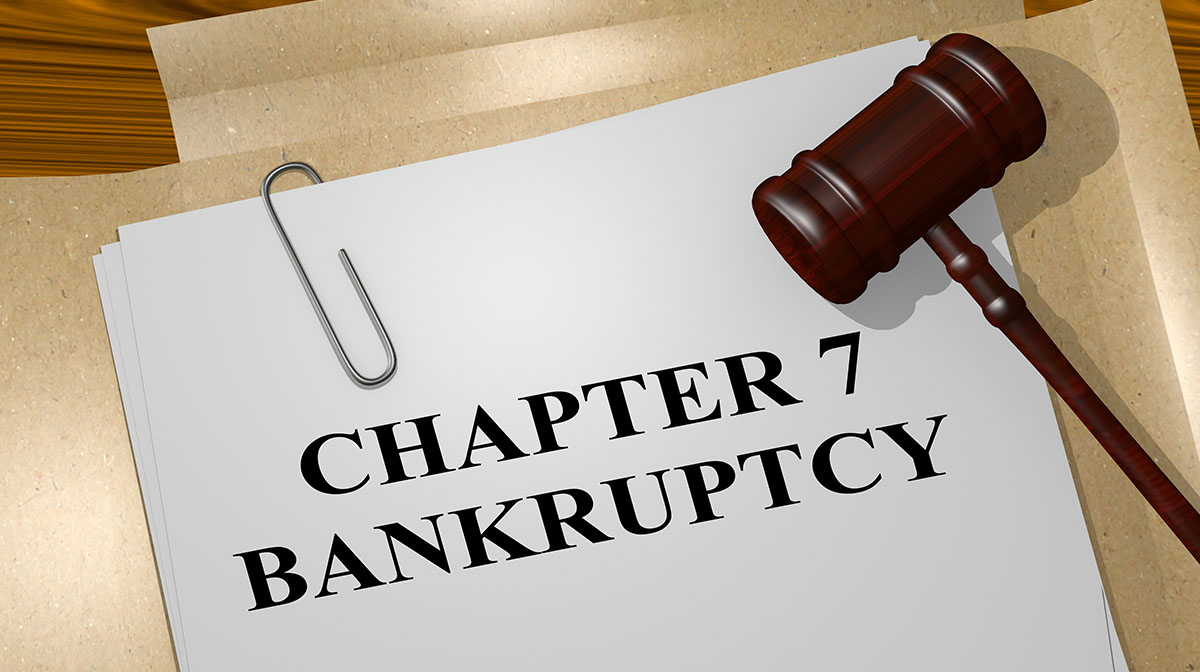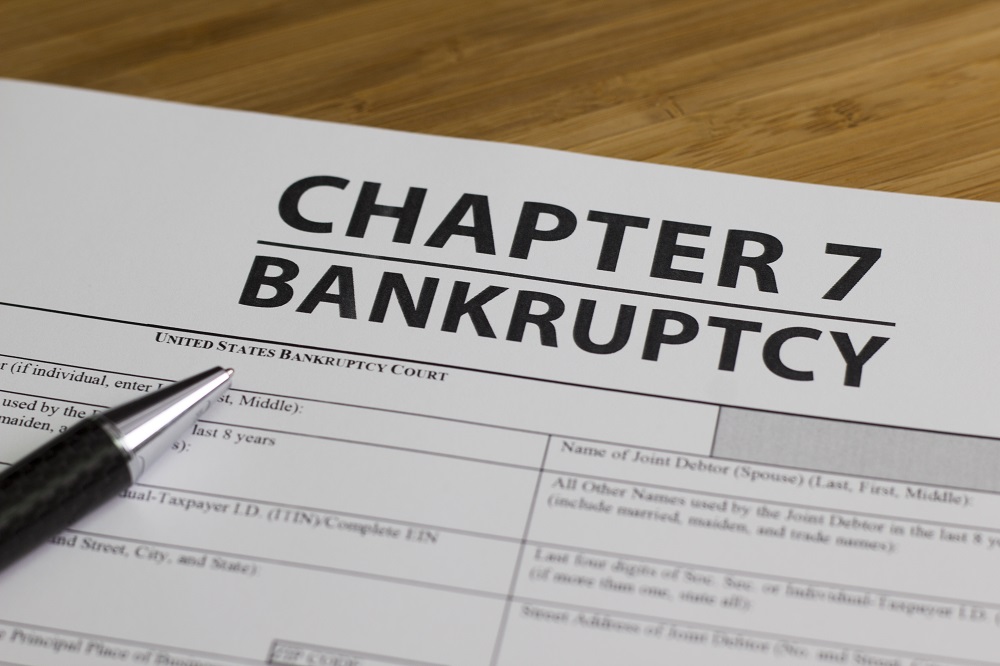Among the different types of bankruptcies, Chapter 7 proceedings, commonly known as a�?liquidation,a�? are the most common. Chapter 7 is a federal court process where most debt will be discharged and any unexempt assets will be sold for the benefit of your creditors. It is an opportunity for debtors who are badly in debt to start fresh financially and be relieved by the restrictive nature that come along with overwhelming debt. Filing for Chapter 7 can be beneficial, however, those considering it must understand the basics, such as: what it is, eligibility, what the process entails, and how to do it.
What Is Chapter 7 Bankruptcy?
If you cannot pay your debt, you may be declared bankrupt. Bankruptcy is a federal court process designed to assist debtors eliminate debt or repay them under the protection of the bankruptcy court. Under Chapter 7 bankruptcy, a Chapter 7 Trustee liquidates most of the debtora��s unsecured debt. The proceeds from liquidation is then given to the debtora��s creditors to pay the unpaid debt.
What Is Unsecured Debt?
Most debt will be forgiven in Chapter 7 bankruptcy, more specifically, unsecured debt. An unsecured debt is debt that is not guaranteed by collateral. This means that a debt that does not give a creditor the right or option to take it from you if you fail to pay it off will be eliminated. Examples include credit card debt, medical bills, personal loans, and deficiency balances on repos and foreclosures. However, some debt will not be forgiven, including student loans (unless the court rules otherwise), child support and alimony, and certain taxes.
Who Can File For Chapter 7 Bankruptcy?
Chapter 7 bankruptcy is available to individuals, married couples, corporations, and partnerships. However, eligibility depends on your income and expenses, which will be examined to see how they compare to the standard of your state. If your monthly household income is below the Arizona median income for a household of your size, you are presumed eligible to file for Chapter 7 bankruptcy.
How To Get Started For Chapter 7 Bankruptcy In Arizona
- Gather the paperwork. You must itemize your current income sources; major financial transactions for the last two years; monthly living expenses; debts; and all property. Also, collect your tax returns for the last two years, deeds to real property you own; car titles; and loan documentation.
- File the necessary paperwork at your Arizona district bankruptcy court. Various forms have to be filed, including: the bankruptcy petition; schedules that summarize your current financial status and recent financial transactions; and other various forms.
- Pay the fee. The fee for Chapter 7 bankruptcy is $335.
- Participate in credit counseling. To qualify for bankruptcy relief, you must show that you received credit counseling. When completed, a certificate of completion must be filed.
The Benefit Of Hiring A Lawyer For Chapter 7 Bankruptcy
- A lawyer can advise you as to whether or not bankruptcy is even your best option. You may not need to file for bankruptcy. Often times, people do not need to file for bankruptcy because there are other alternatives.
- A lawyer can make sure you file under the right chapter. There are several bankruptcy chapters to choose from and each one treats property and debt differently.
- A lawyer can assist you in filing the required documents. Often times, self-represented debtors fail to file the correct documents and/or answer them correctly.
- A lawyer can help you liquidate as little property as possible. Property exemptions play a significant role in Chapter 7 bankruptcy. You may lose more property than necessary without the proper guidance.
Call to speak directly with the experienced Phoenix bankruptcy lawyers at Ariano & Reppucci, PLLC.



